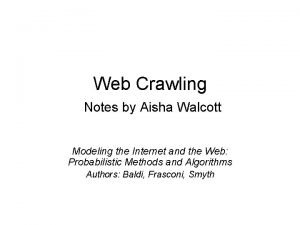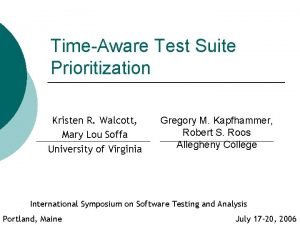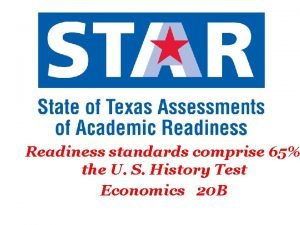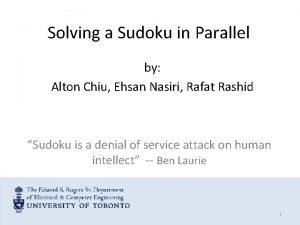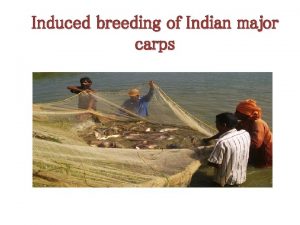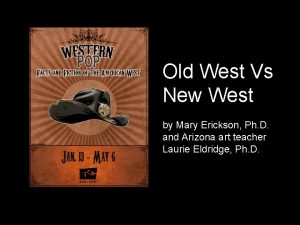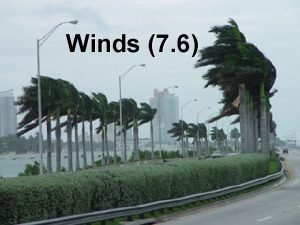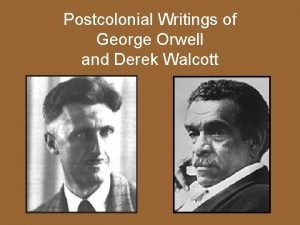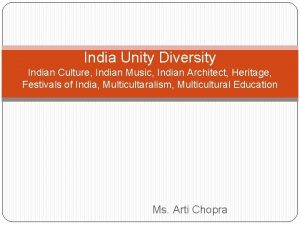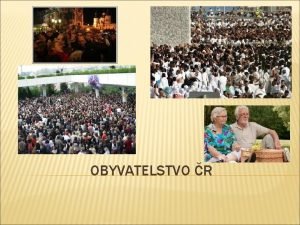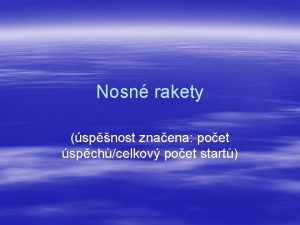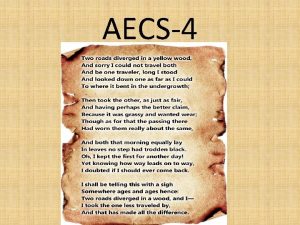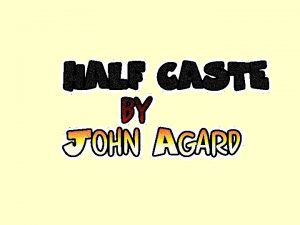Derek Alton Walcott 1930 Major West Indian Poet















- Slides: 15

Derek Alton Walcott 1930 - ? Major West Indian Poet and Dramatist

Derek Walcott • Lived most of his life in Trinidad • Awarded Nobel Prize for Literature in 1992 • Studied conflict between heritage of European and West Indian culture

Themes in Walcott’s work • European vs. West Indian cultures • Movement from slavery to independence • His life long role as a nomad between two cultures

Walcott’s Poetry • Characterized by – Allusions to English poetic tradition – Symbolic imagination both personal and Caribbean

Nobel Prize Lecture “Poetry, which is perfection’s sweat but which must seem as fresh as the raindrops on a statue’s brow, combines the natural and the marmoreal; it conjugates both tenses simultaneously: the past and the present, if the past is the sculpture and the present the beads of dew or rain on the forehead of the past. There is the buried language and there is the individual vocabulary, and the process of poetry is one of excavation and of self-discovery. ”

Life of Walcott • Born in Castries, St. Lucia, an isolated Caribbean island in the West Indies • Father, Warwick, was a Bohemian artist, died when Walcott was very young • Mother, Alix, teacher who taught him to love poetry

Family Background Walcott said of his family: “I was raised in this obscure Caribbean poet, where my bastard father christened me for his shire, Warwick. The Bard’s country. ”

Education • Walcott was educated at St. Mary’s College, Castries • Received scholarship to the University College of the West Indies in Kingston, Jamaica • Studied French, Latin and Spanish • Studied theater in New York 1958 -59

Early Writing • Walcott wrote his first play Henri Christopher which was performed in 1950 • Wrote for local newspaper, the Trinidad Guardian

Marriages • First marriage to Fay Moston, a secretary, broke up after a few years • Second wife, Margaret Maillard, was an almoner in a hospital • 1976 – married Norline Metivier, also ended in divorce

Different careers • 1953 -57 Walcott worked as a teacher at schools on several Caribbean islands • Started his career as a journalist, writing features and drama criticism • Worked as a professor of poetry at the University of Boston, divided time between Trinidad and US

Writing from Omeros “ I sang our wide country, the Caribbean Sea who hated shoes, whose soles were as cracked as a stone, who was gentle with ropes, who had one suit alone, whom no man dared insult and who insulted no one, whose grin was a white breaker cresting, but whose frown was a growing thunderhead…”

Works of Walcott Made his debut at 18 with Twenty Five Poems 1964 – Recognition as a poet with In a Green Night 1981 – The Fortunate Traveller 1984 – Midsummer Explored his situation as a black writer in America, estranged from Caribbean homeland

Voice of the Caribbean People • Walcott called himself “a mulatto of style” • Was of mixed black, Dutch and English descent • Fuses folk culture with classical and avant-garde • Writes of personal conflicts arising from his mixed-race background

A Far Cry from Africa 1962 “I who am poisoned with the blood of both, Where shall I turn, divided to the vein? I who have cursed The drunken officer of British rule, how choose Between this Africa and the English tongue I love? ”
 Fay moston
Fay moston Xiv derek walcott meaning
Xiv derek walcott meaning Aisha walcott
Aisha walcott Kristen walcott
Kristen walcott Patricia walcott
Patricia walcott Alton towrs
Alton towrs Alton towers business
Alton towers business Alton dfs
Alton dfs Alton brown turkey derrick
Alton brown turkey derrick Alton woods
Alton woods Crews middle school staff
Crews middle school staff Alton towers aims and objectives
Alton towers aims and objectives Alton cars huddersfield
Alton cars huddersfield Hypophysation and breeding of indian major camps
Hypophysation and breeding of indian major camps Old west vs new west
Old west vs new west West north west wind direction
West north west wind direction


